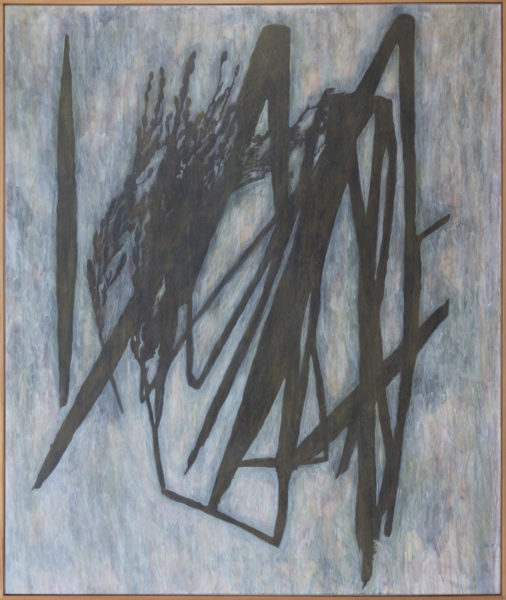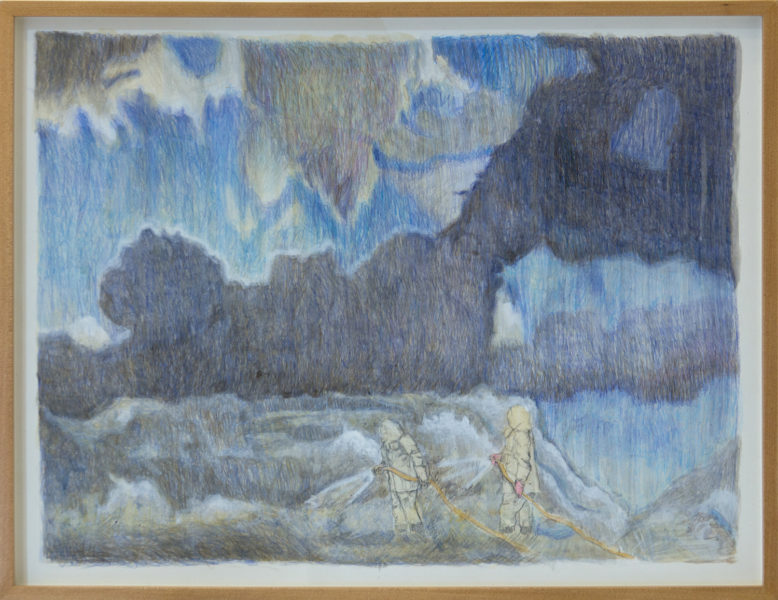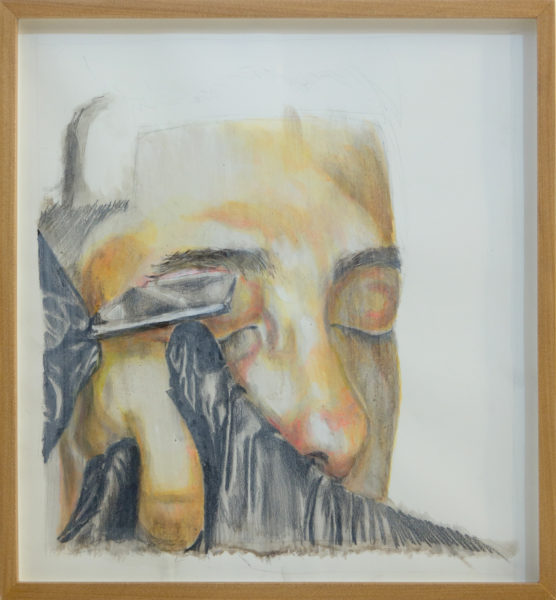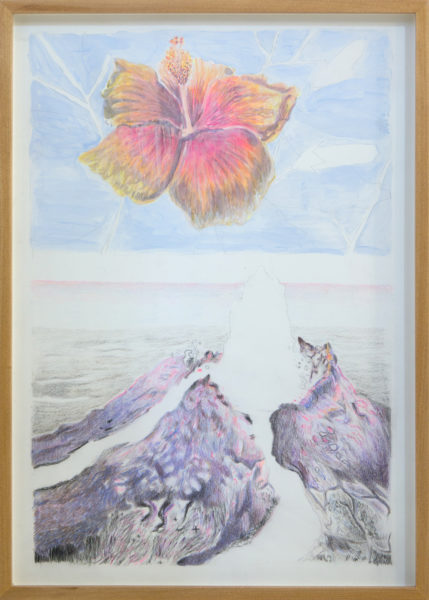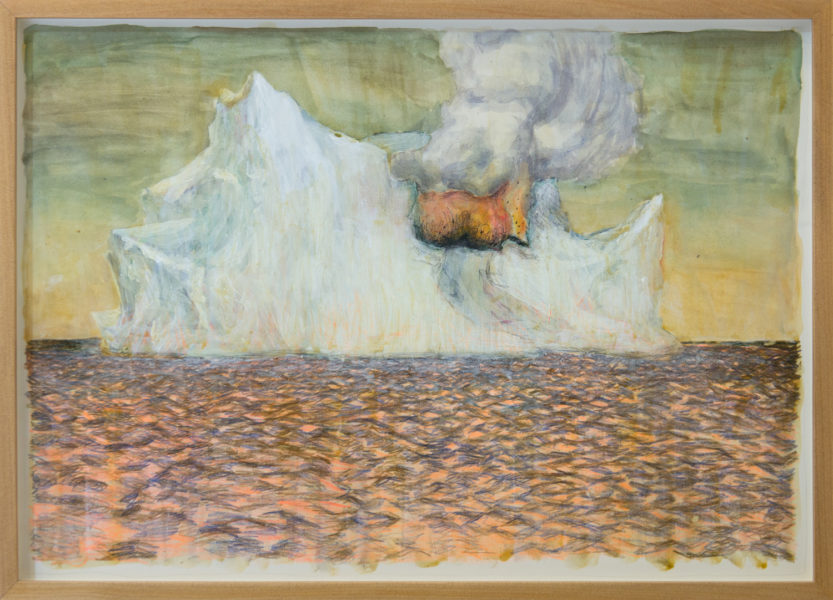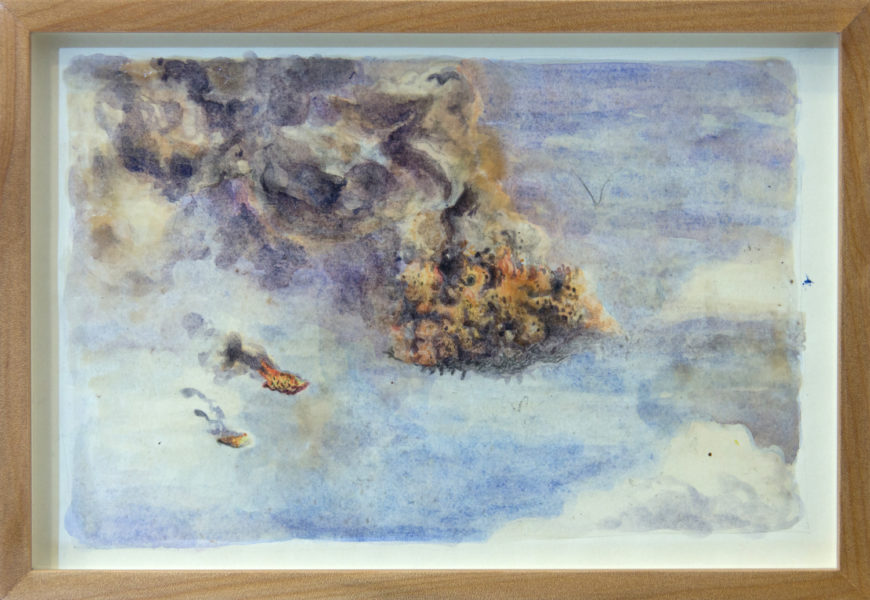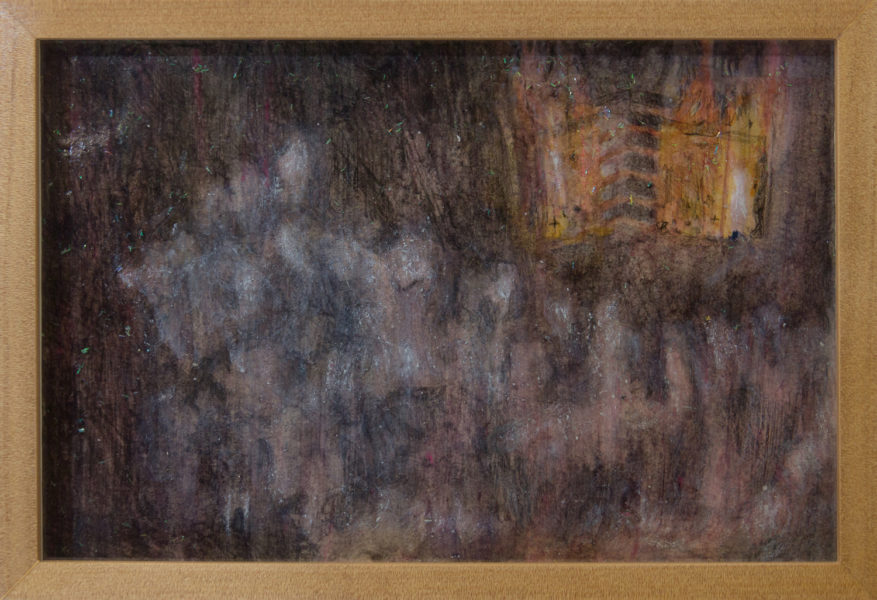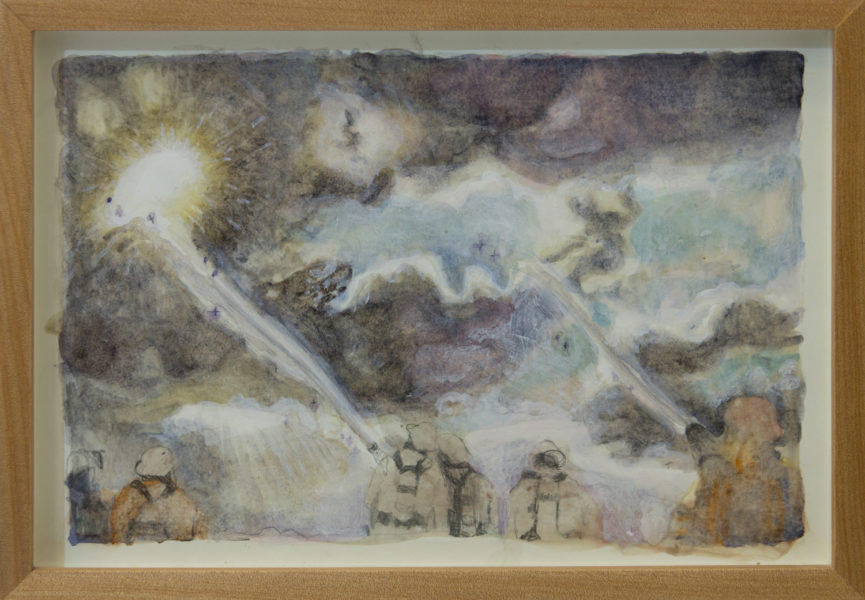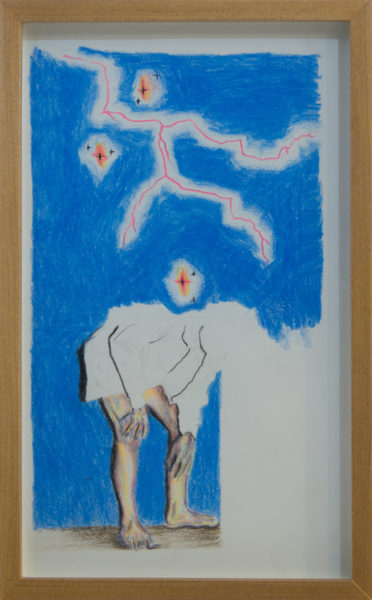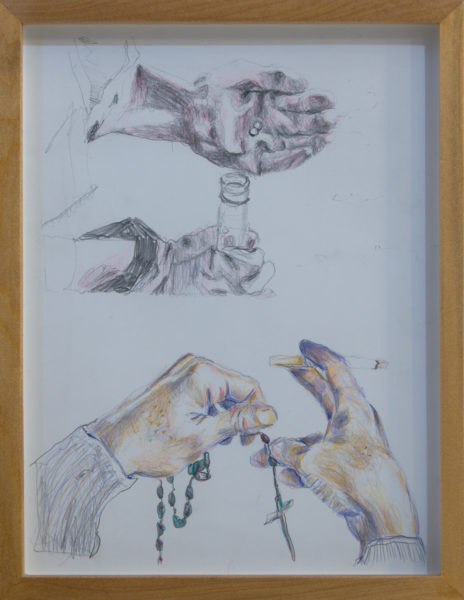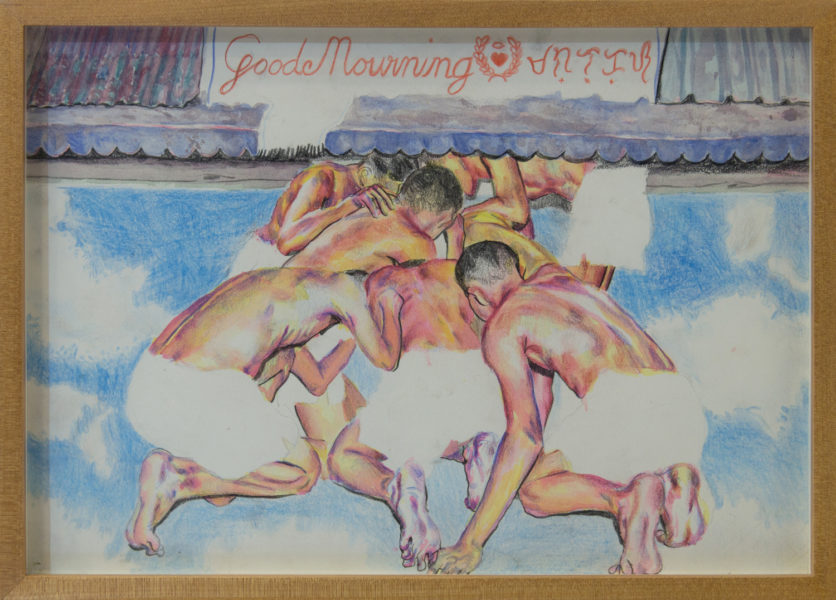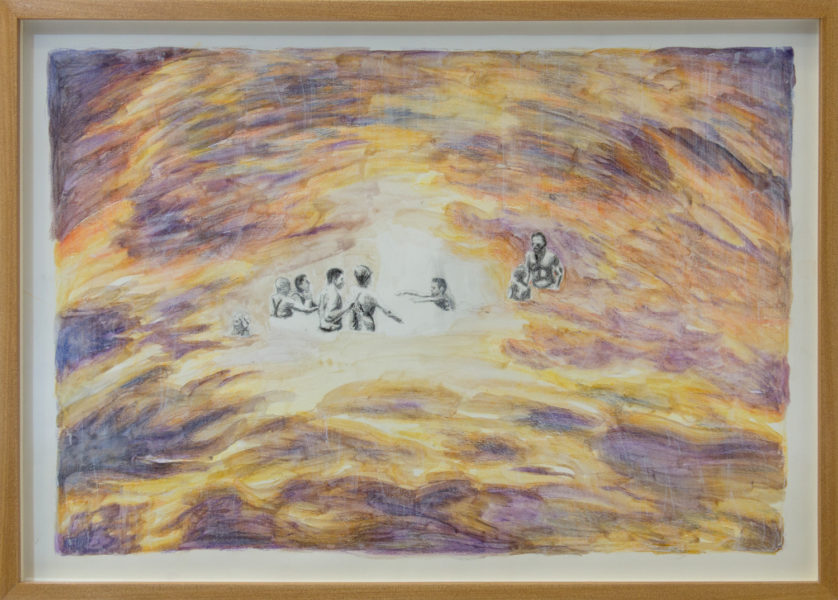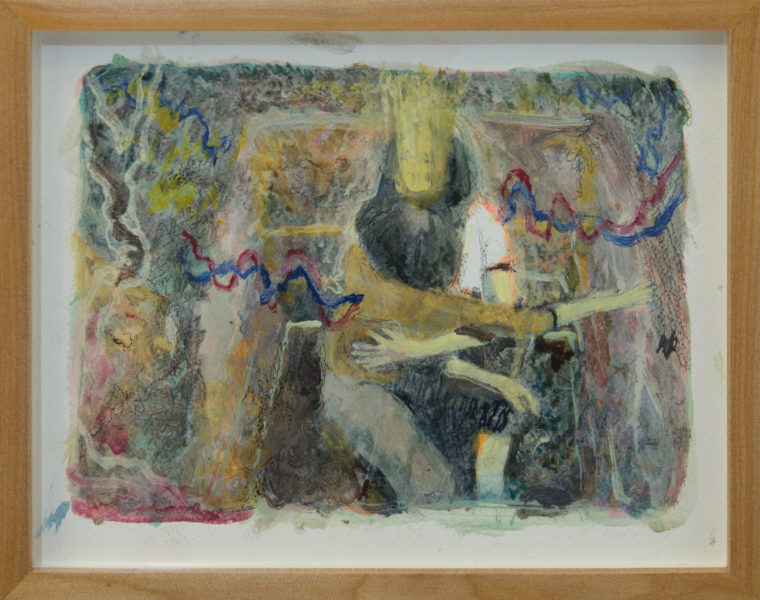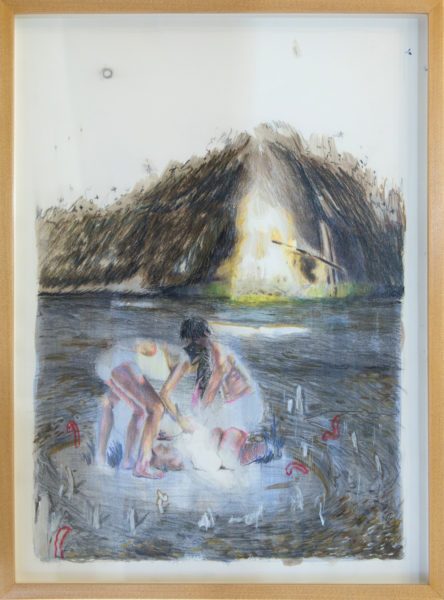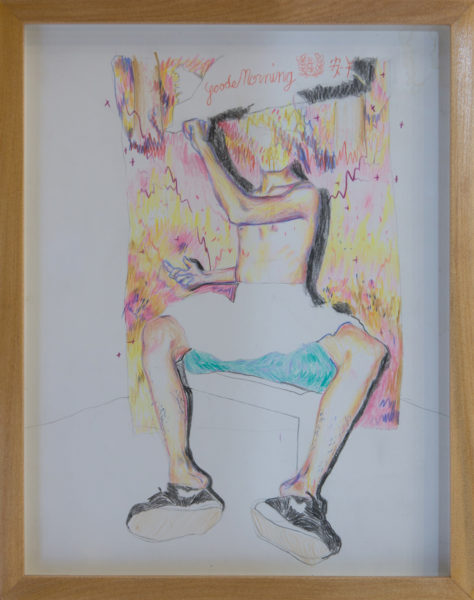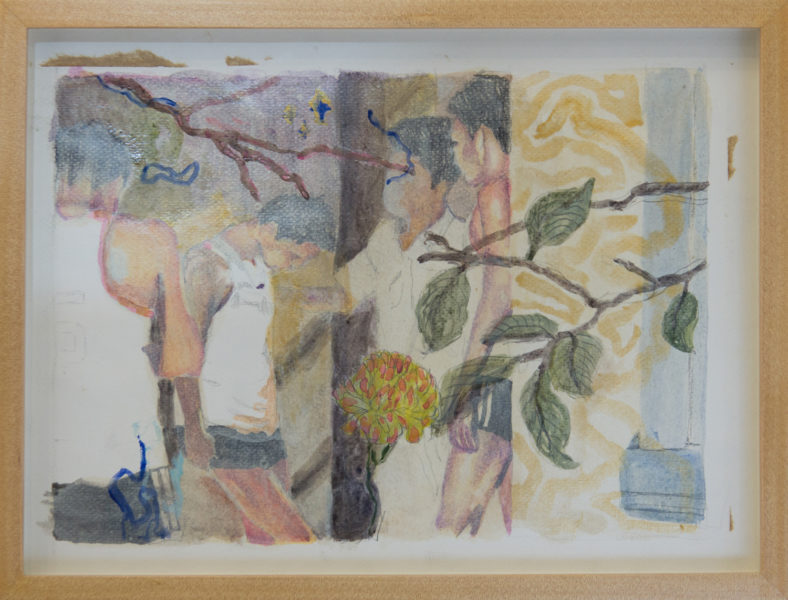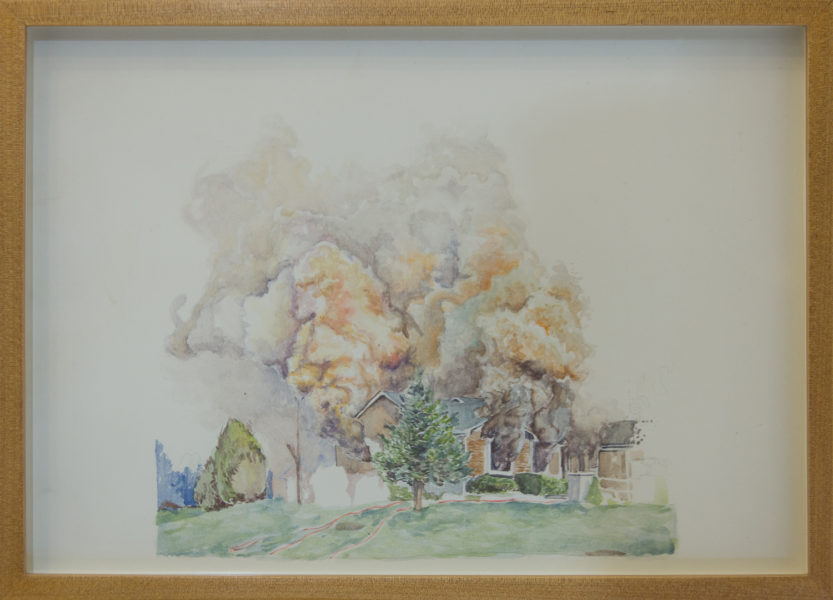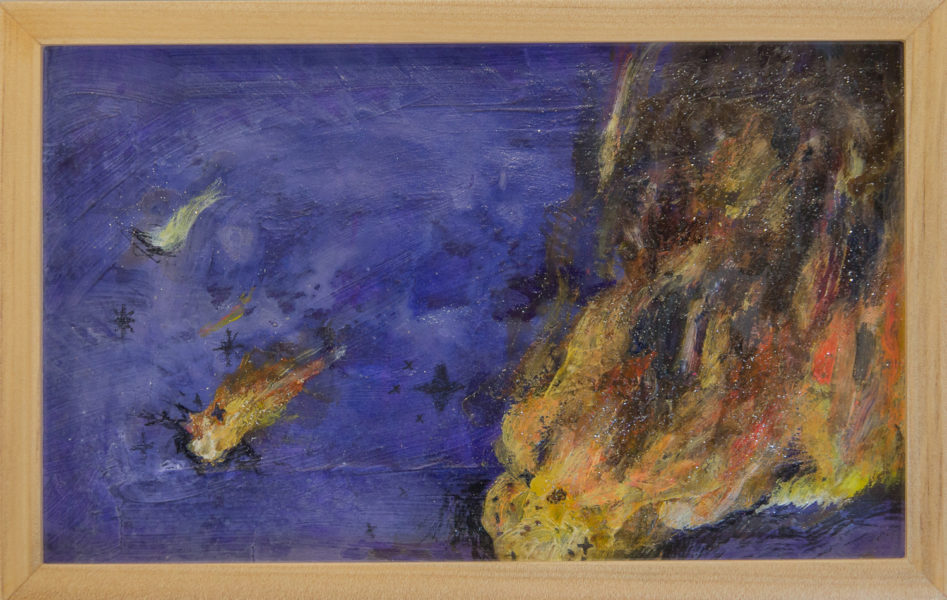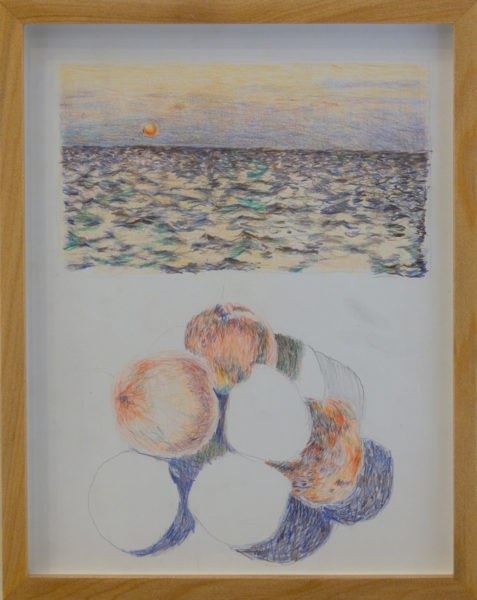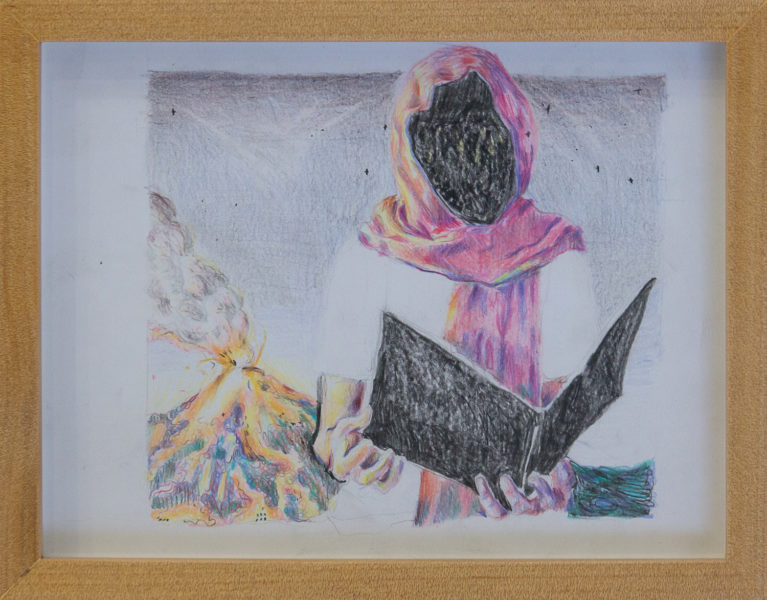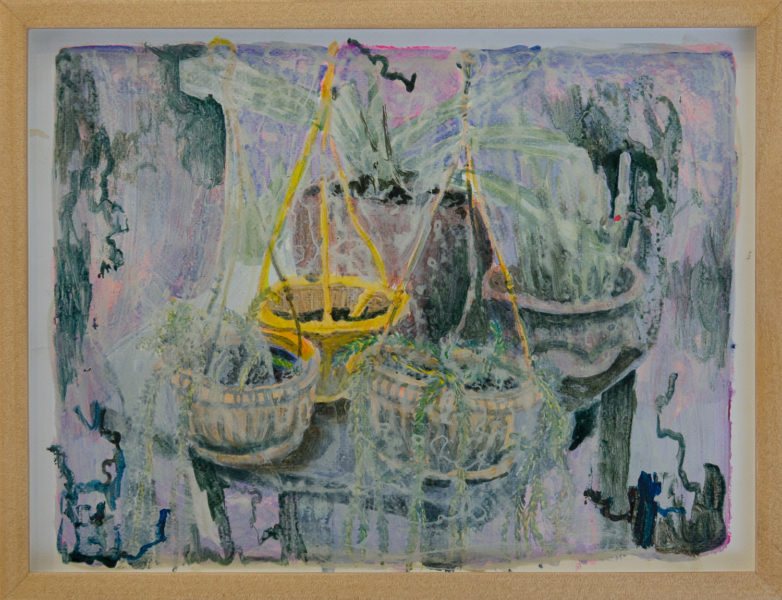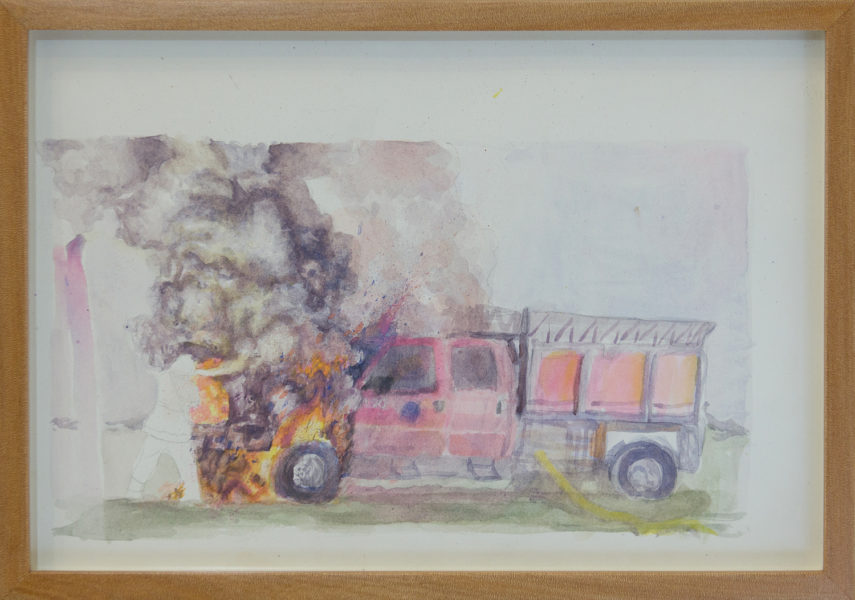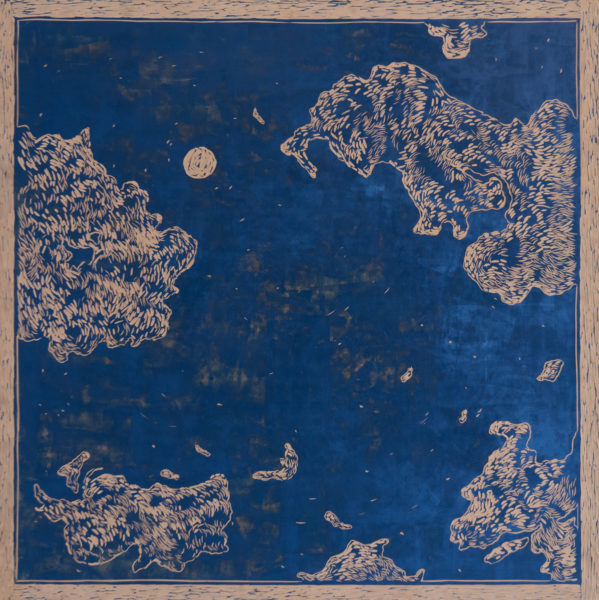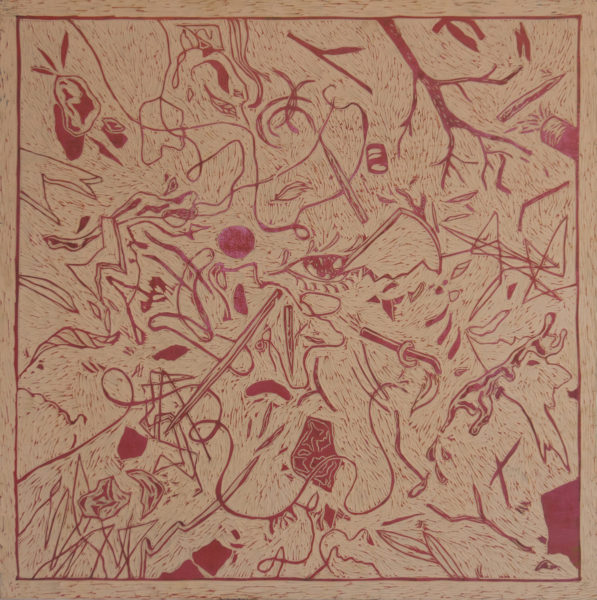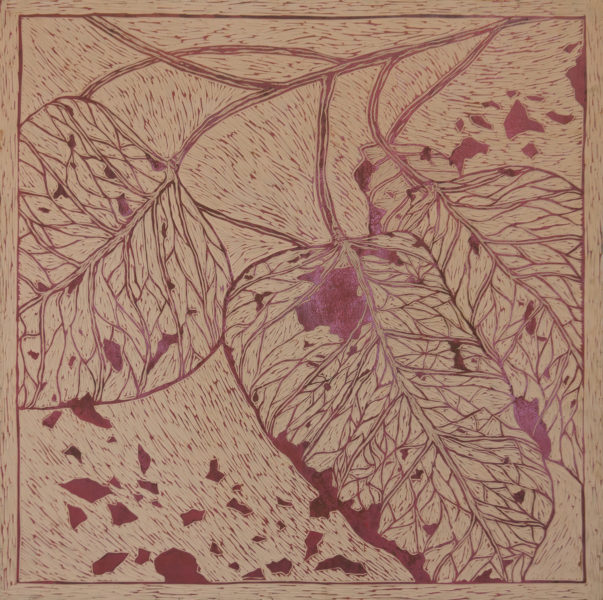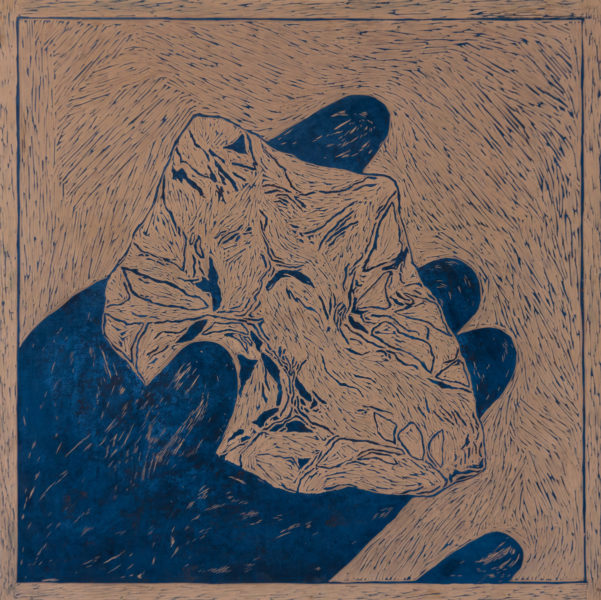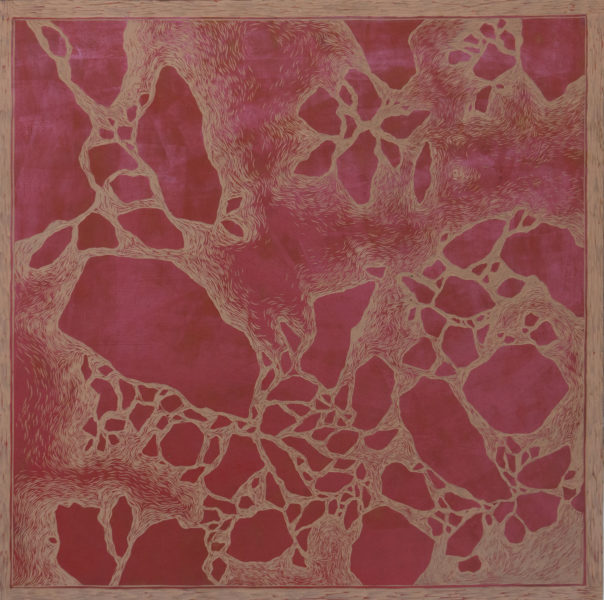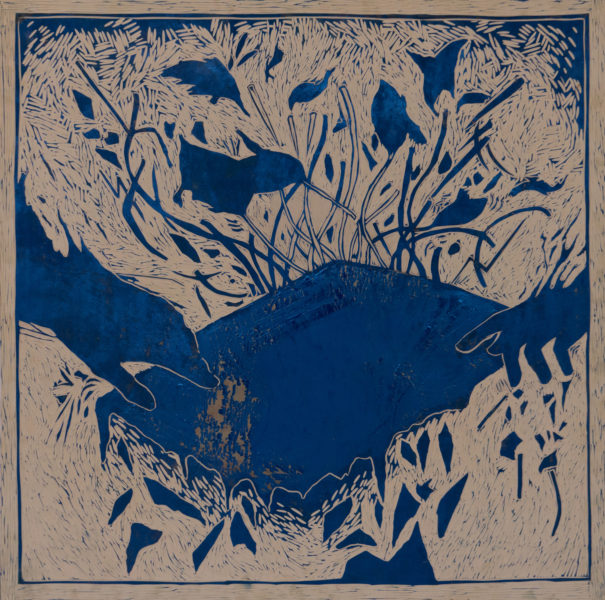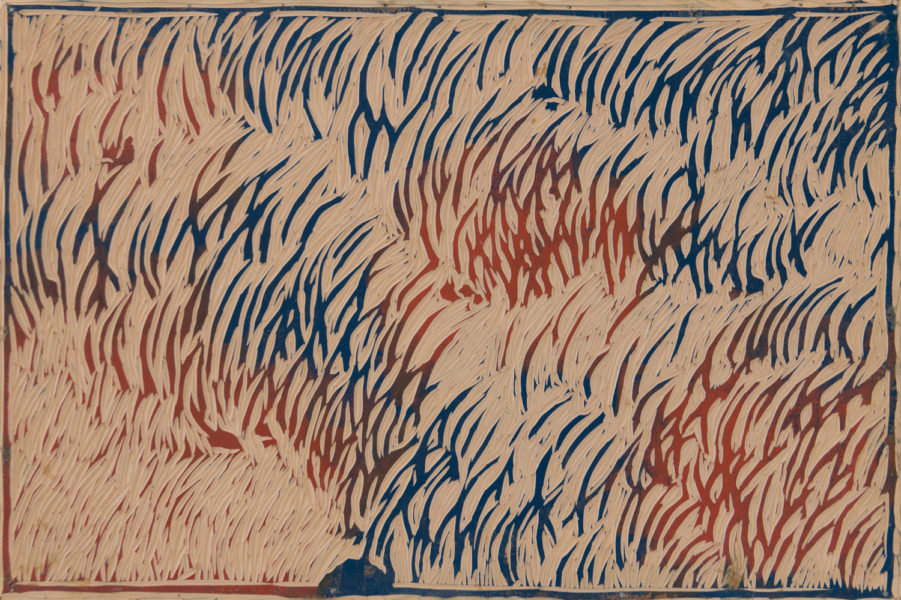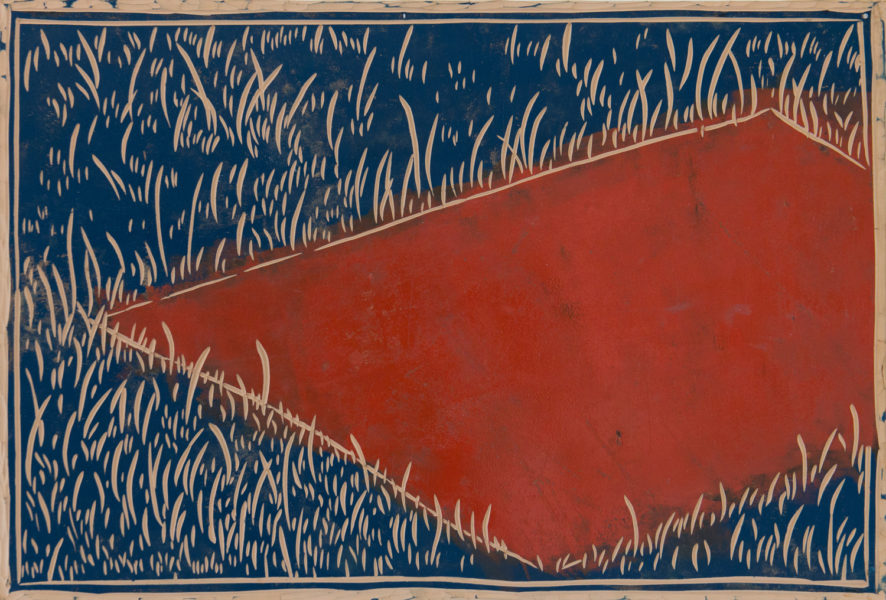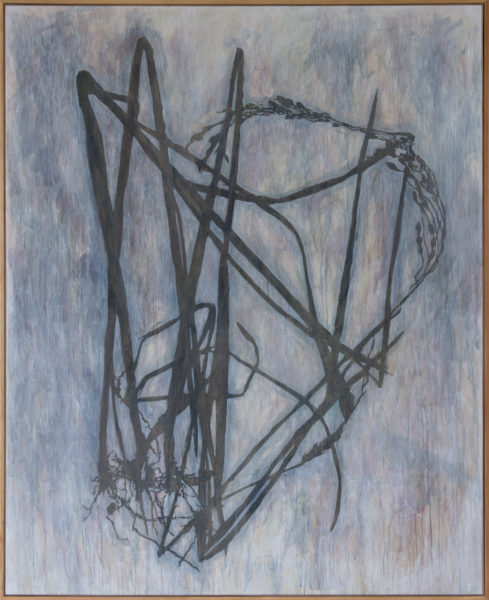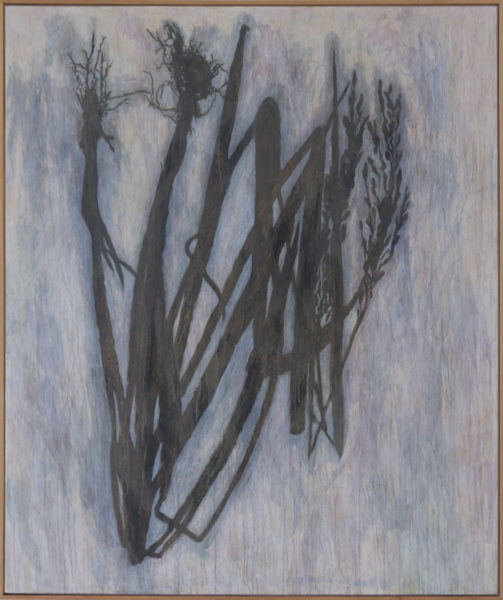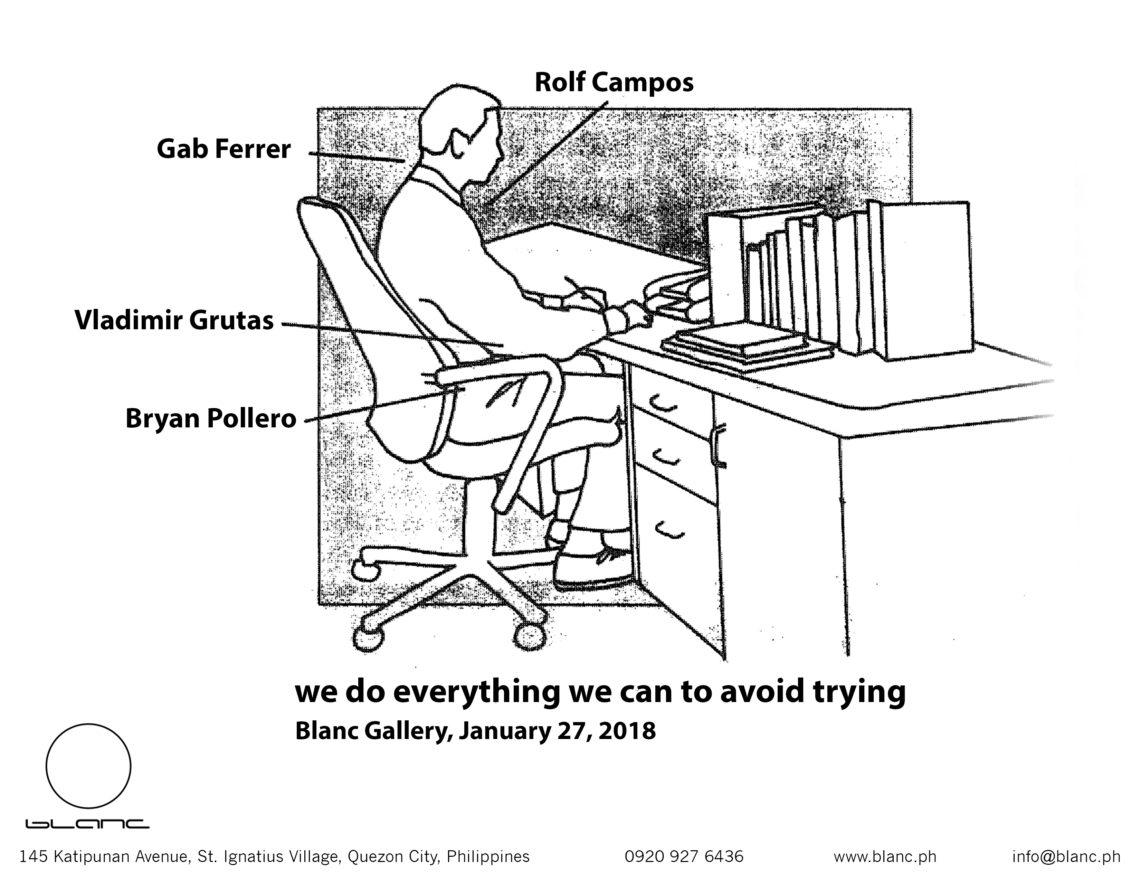
We Do Everything We Can to Avoid Trying
Rolf Campos, Gab Ferrer, Vlad Grutas, and Bryan Pollero
1 In the concept of wu wei (or in its other forms, “non-doing” or “without control”), gentle persistence of that which is natural is placed above the rigidity of deliberation; it can also be understood simply as action done without excessive force or controlling effort. This calm leaning toward naturalism is alluded to here—We Do Everything We Can to Avoid Trying allows for the autonomy of individual creatives, none solicitous of indulging the usual preference for homology. It proposes a notice on the conventionalized direction of contemporary art shows—where obvious subject cohesion somewhat ascertains an ambiguous fulfillment.
2 Grutas presents a bilateral assessment of his own; an aspect of it is a critique on the current local state of politics while the other is on the particular dynamics of art and its society. Satirically prompting the intentions of a platform where one is placed with authority, Grutas directly references the harsh intolerance of dictatorship—a schema he found to persist in both studied scenarios. Where the Philippine populace finds itself forsaken to a tyrant’s dogma, the art public likewise perceives its subjection to the monopolizing influences of the elitist few. The raised swastika holds as a clever review as well as an interpretation of deeply problematic social reals.
3 Rousing from similar meditations on society at large, Ferrer ponders on the notion of debris as the subject of her response. It is this concept of debris—scattered remains which inevitably break from something much larger—from which Ferrer’s intricate rubbercuts come forth. Likening the quality of debris to floating images, ideas, shavings, and refuse, Ferrer reimagines the members of society, including herself, as avid consumers of life’s many transient particularities; fragments from both grand and humble phenomenons.
4 In a similar vein but perhaps more self-referential, Pollero visually extends a conceptual network birthed by internal dialogue. Reinterpreting found images, he illustrates arbitrary concepts found budding from the restlessness of contemplation, forming in the thick of polar ironies (i.e. “calmness and tragedy, idleness and mischief, resolution and restart”…). Mindful of the limitations of depicting the immaterial, we recognize but an overview of layered abstract cues; an illustrated collection underscoring the complex richness of psychology.
5 And Campos, with some existential consideration, interestingly draws from the floral Oryza sativa—rice. Exposed to much of chronicled specimens as a botanical illustrator, Campos here recalls the perpetual suspension of collected samplings between life and death. As an emissary of nature’s inevitable growth and change—imparting the modesty of impermanence—Campos reintroduces the grass in its most basic form, stripping it of details that could cloud its silhouette, avoiding to muddle the sincerity of its condition.
6 We Do Everything We Can to Avoid Trying communicates the accommodation for ideas coming from unlike founts; an assemblage encouraging—even celebrating—conceptual intricacies in their many forms; an acceptance of deviance from the ideal, the uniformed, and the seamless; and perhaps a pressing reminder that there is still much discrepancy to anticipate in the present field.
— Delacruz, Vianca
Works
Documentation





